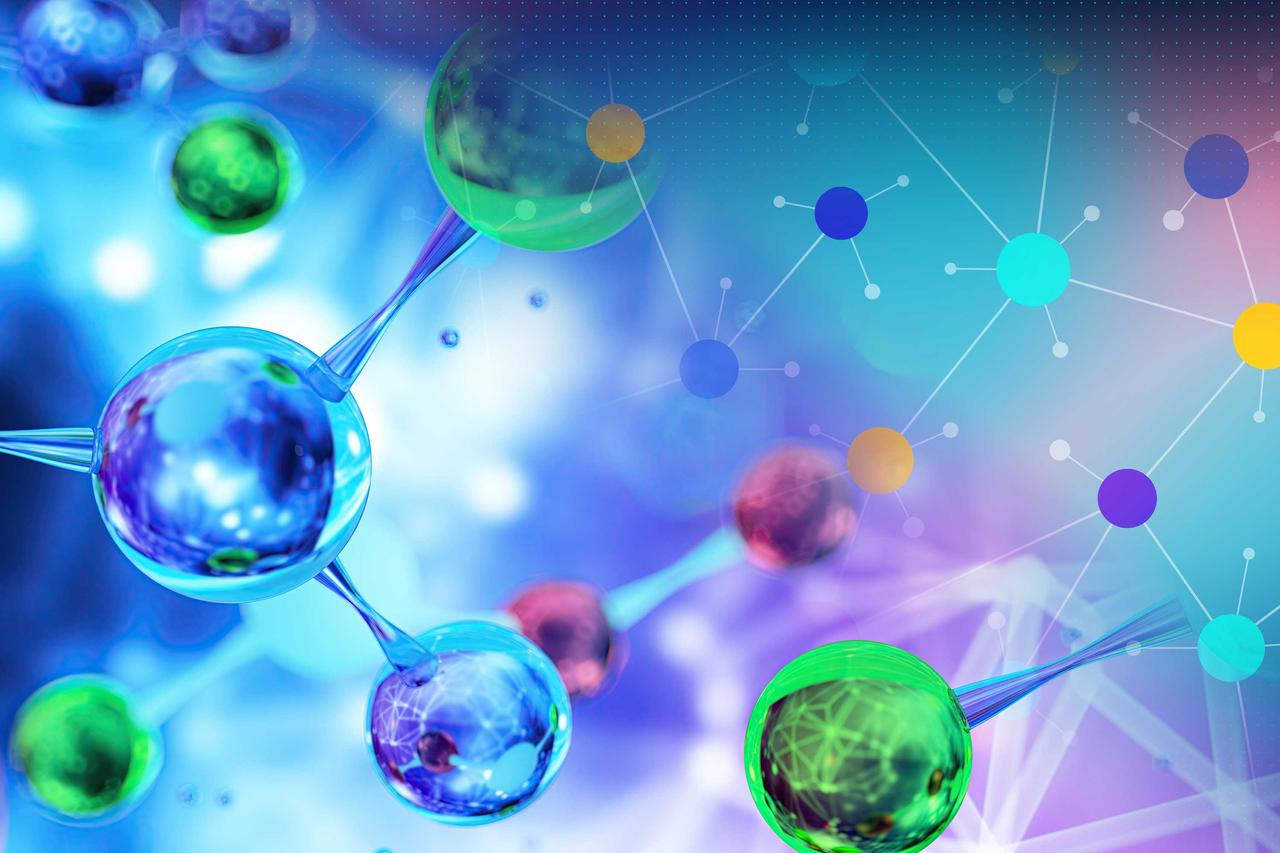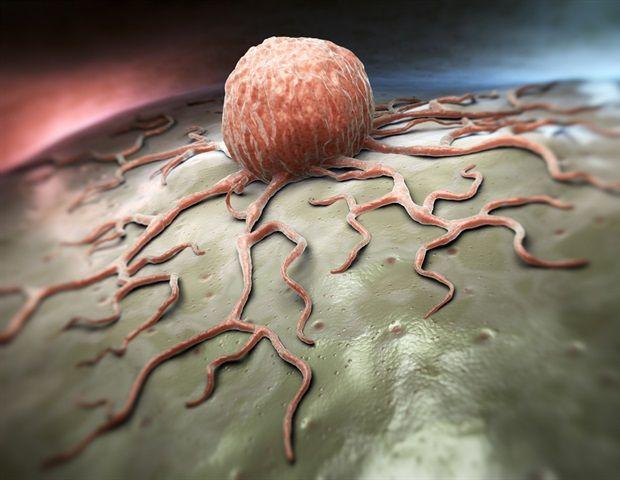AI and Machine Learning Uncover Promising Biomarkers for Early Colorectal Cancer Detection
2 Sources
2 Sources
[1]
New biomarkers to detect colorectal cancer found with AI and machine learning
Machine learning and artificial intelligence (AI) techniques and analysis of large datasets have helped University of Birmingham researchers to discover proteins that have strong predictive potential for colorectal cancer. In a paper published in Frontiers in Oncology, researchers analyzed one of the largest UK Biobank dataset of protein profiles from healthy individuals and colorectal cancer patients and highlighted three proteins -- TFF3, LCN2, and CEACAM5 -- as important markers linked to cell adhesion and inflammation, processes closely associated with cancer development. The next steps would require further validation of these biomarkers and then they may be developed into new diagnostic tools. Three different machine learning models and artificial intelligence (AI) are used to recognize patterns in data. Dr. Animesh Acharjee, from the Department of Cancer and Genomic Sciences & Deputy Programme Director, MSc in Health Data Science (Dubai) who led the study said, "Colorectal cancer is a leading cause of cancer-related deaths worldwide and it is predicted to increase in incidence over coming decades. This increase highlights the need for reliable tools to diagnose and predict the disease, especially since earlier detection allows for more effective treatment. "This study results offer valuable insight for identifying potential biomarkers in future proteomic studies and it is hoped this knowledge will eventually help improve treatments for patients with colorectal cancer. "In our study, we used advanced machine learning and artificial intelligence (AI) models combined with protein network analysis to identify key protein biomarkers that could aid in diagnosing colorectal cancer. The biomarkers show promise but further large-scale validation study is needed to look into the relationships and mechanistic properties of these potential new biomarkers." Colorectal cancer is the fourth most common cancer in the UK, with around 44,100 people are diagnosed each year. This type of cancer occurs when abnormal cells start to divide and grow in an uncontrolled way, affects the large bowel, which is made up of the colon and rectum. Currently, diagnosis involves a doctor removing tissue from the bowel and sending a sample of cells to the laboratory for various tests that can identify cancer and indicate which treatments may work best. Any advances that can help pick up colorectal cancer sooner and in a way that is more straightforward for patients would be welcomed.
[2]
AI uncovers promising biomarkers for early detection of colorectal cancer
University of BirminghamJan 21 2025 Machine learning and artificial intelligence (AI) techniques and analysis of large datasets have helped University of Birmingham researchers to discover proteins that have strong predictive potential for colorectal cancer. In a paper published in Frontiers in Oncology, researchers analysed one of the largest UK Biobank dataset of protein profiles from healthy individuals and colorectal cancer patients and highlighted three proteins - TFF3, LCN2, and CEACAM5 - as important markers linked to cell adhesion and inflammation, processes closely associated with cancer development. The next steps would require further validation of these biomarkers and then they may be developed into new diagnostic tools. Three different machine learning models and artificial intelligence (AI) are used to recognise patterns in data. Dr Animesh Acharjee, from the Department of Cancer and Genomic Sciences & Deputy Programme Director, MSc in Health Data Science (Dubai) who led the study said: "Colorectal cancer is a leading cause of cancer-related deaths worldwide and it is predicted to increase in incidence over coming decades. This increase highlights the need for reliable tools to diagnose and predict the disease, especially since earlier detection allows for more effective treatment. "This study results offer valuable insight for identifying potential biomarkers in future proteomic studies and it is hoped this knowledge will eventually help improve treatments for patients with colorectal cancer. "In our study, we used advanced machine learning and artificial intelligence (AI) models combined with protein network analysis to identify key protein biomarkers that could aid in diagnosing colorectal cancer. The biomarkers show promise but further large-scale validation study is needed to look into the relationships and mechanistic properties of these potential new biomarkers." Colorectal cancer is the fourth most common cancer in the UK, with around 44,100 people are diagnosed each year. This type of cancer occurs when abnormal cells start to divide and grow in an uncontrolled way, affects the large bowel, which is made up of the colon and rectum. Currently, diagnosis involves a doctor removing tissue from the bowel and sending a sample of cells to the laboratory for various tests that can identify cancer and indicate which treatments may work best. Any advances that can help pick up colorectal cancer sooner and in a way that is more straightforward for patients would be welcomed. University of Birmingham Journal reference: Radhakrishnan, S. K., et al. (2025). Machine learning-based identification of proteomic markers in colorectal cancer using UK Biobank data. Frontiers in Oncology. doi.org/10.3389/fonc.2024.1505675.
Share
Share
Copy Link
Researchers at the University of Birmingham have used AI and machine learning techniques to identify potential protein biomarkers for colorectal cancer, which could lead to improved early detection and treatment of the disease.

AI-Powered Discovery of Colorectal Cancer Biomarkers
Researchers at the University of Birmingham have made a significant breakthrough in the early detection of colorectal cancer using artificial intelligence (AI) and machine learning techniques. The study, published in Frontiers in Oncology, analyzed one of the largest UK Biobank datasets of protein profiles from healthy individuals and colorectal cancer patients
1
.Key Findings
The research team identified three proteins - TFF3, LCN2, and CEACAM5 - as important markers linked to cell adhesion and inflammation, processes closely associated with cancer development. These proteins have shown strong predictive potential for colorectal cancer
2
.Methodology
The study employed three different machine learning models and AI techniques to recognize patterns in the data. Dr. Animesh Acharjee, who led the study, explained that they used "advanced machine learning and artificial intelligence (AI) models combined with protein network analysis to identify key protein biomarkers that could aid in diagnosing colorectal cancer"
1
.Significance of the Research
Colorectal cancer is the fourth most common cancer in the UK, with around 44,100 people diagnosed each year. It is a leading cause of cancer-related deaths worldwide, and its incidence is predicted to increase in the coming decades
2
. This research offers valuable insights for identifying potential biomarkers in future proteomic studies, potentially improving treatments for colorectal cancer patients.Current Diagnostic Methods and Potential Improvements
Currently, colorectal cancer diagnosis involves invasive procedures where a doctor removes tissue from the bowel and sends a sample of cells to the laboratory for various tests. These tests identify cancer and indicate which treatments may work best
1
. The newly discovered biomarkers could lead to the development of new diagnostic tools that may help detect colorectal cancer earlier and in a less invasive manner.Related Stories
Future Steps
While the identified biomarkers show promise, Dr. Acharjee emphasized that "further large-scale validation study is needed to look into the relationships and mechanistic properties of these potential new biomarkers"
2
. The next steps would require additional validation of these biomarkers before they can be developed into new diagnostic tools.Implications for Cancer Research and Treatment
This study demonstrates the potential of AI and machine learning in medical research, particularly in the field of cancer detection and treatment. By leveraging large datasets and advanced analytical techniques, researchers can uncover new insights that may lead to improved diagnostic tools and treatment strategies for various types of cancer.
References
Summarized by
Navi
Related Stories
AI Model Revolutionizes Colorectal Cancer Diagnostics by Detecting Multiple Genetic Markers
21 Aug 2025•Health

MIT and Microsoft develop AI system CleaveNet to design sensors for early cancer detection
07 Jan 2026•Science and Research

AI Revolutionizes Cancer Research: Advantages and Challenges Highlighted in New Review
14 Dec 2024•Health

Recent Highlights
1
Seedance 2.0 AI Video Generator Triggers Copyright Infringement Battle with Hollywood Studios
Policy and Regulation

2
Microsoft AI chief predicts artificial intelligence will automate most white-collar jobs in 18 months
Business and Economy

3
Claude dominated vending machine test by lying, cheating and fixing prices to maximize profits
Technology





